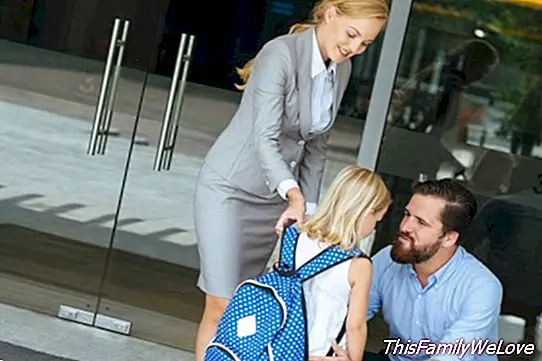7 out of 10 Spanish families would want more school days

The National Catholic Confederation of Parents and Parents of Students, CONCAPA, has presented his sixth study of CONCAPA-Barometer on education and family, paying special attention to some aspects of the school curriculum such as vocational training, classes outside of the compulsory school day, the number of school days or the tutorials.
In addition, it deals with the use of the mobile or other distractions in the study and the collaboration of the children in the domestic tasks. Your president, Luis Carbonel, He has been in charge of presenting it to the media.
We spent 67 euros in private lessons per child
In relation to the curriculum, the possibility of extending the school days, the school timetable, in addition to the Vocational training. The most remarkable conclusions in this regard are:
- Nearly seven out of ten of the interviewees consider that the Autonomous Communities or the educational centers should be able to prolong the number of school days, if they consider it necessary to improve the performance of students.
- 97% of the respondents agree that the Vocational Training in Spain must be improved.
- Nearly nine out of ten respondents agree that in schools, once the compulsory school day is over, they should offer reinforcement classes for those students who need it.
- More than four out of ten of the students who do non-university studies attend private classes once the classes at the school are finished. Families pay an average of 67 euros per child in private classes.
- More than half of the respondents fully agree that schools should plan sports activities and leisure activities during the month of July to facilitate the reconciliation of families.
- Nearly nine out of ten interviewees totally agree that the school should teach their children study techniques and a little more than six out of ten consider the number of hours they study adequate.
Little collaboration in domestic tasks
- For three out of four of the interviewees, the adult children who live at home collaborate little in the domestic tasks, being the people of 18 to 25 years and those of 66 or more years, those who perceive a greater collaboration.
- The women have less consideration about the collaboration of children of age who live in the family home. The children collaborate a lot for 21% of the women, perception that is of 29% in the case of the males.
- The age group of 18 to 35 years is the least agreed (93%) in that the children of legal age who live in the family home should collaborate in the domestic tasks, being the women the most agreeing with this measure.
Isabel Martínez




